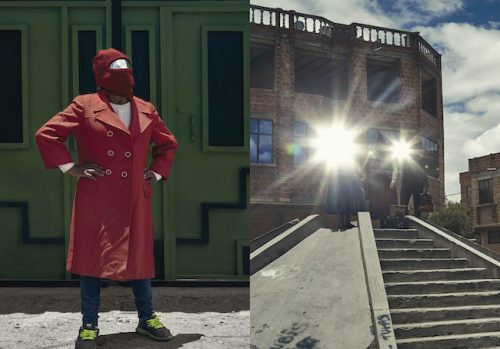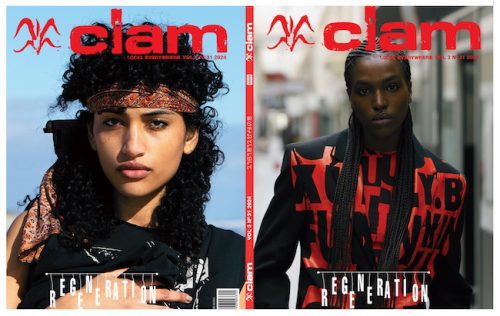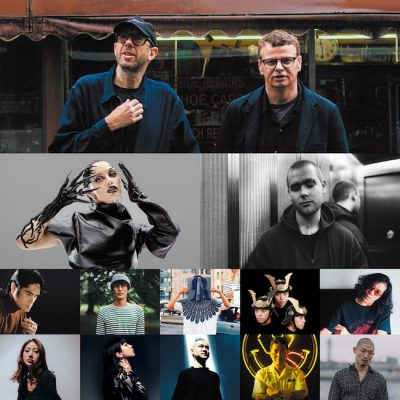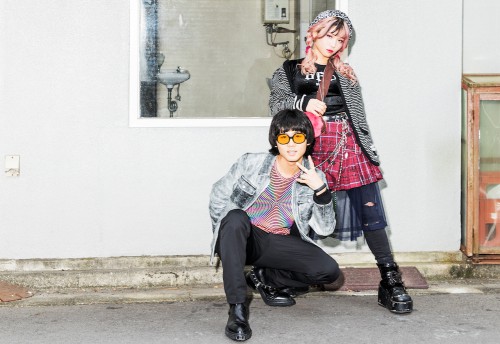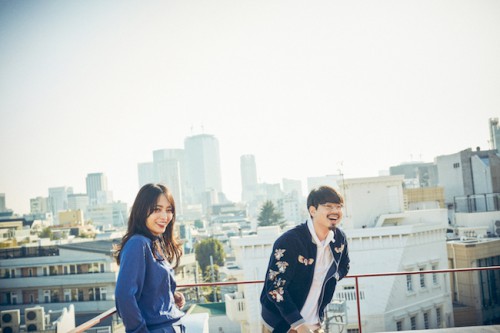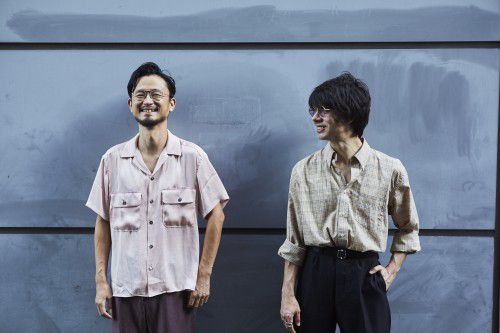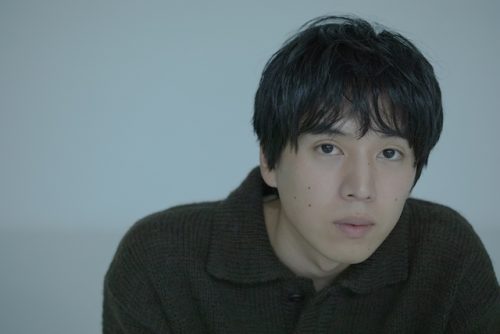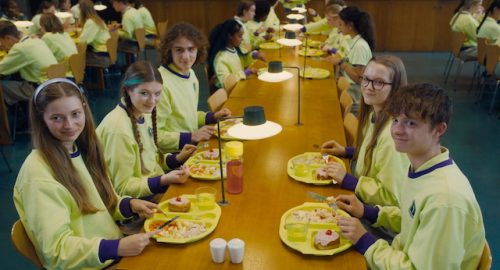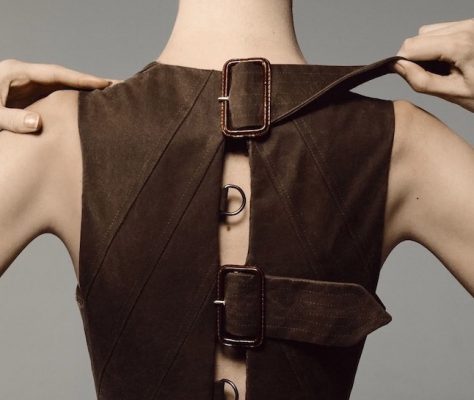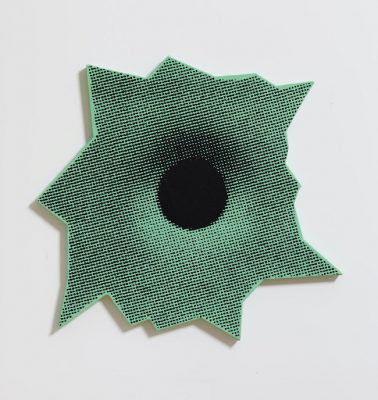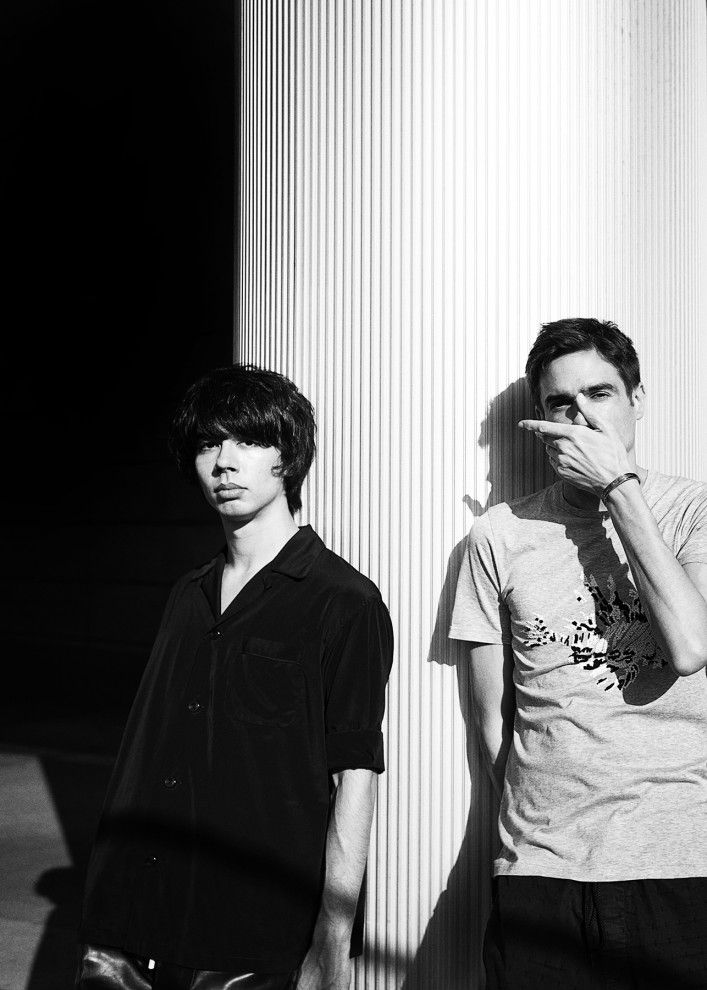
OKAMOTO’Sのメンバーが友人はもちろん、憧れのアーティストなどをゲストに迎える対談企画。第30回目は、英国王立音楽院でクラシックを学び、アルバム『イミュニティ』でマーキュリー・プライズにノミネート。ブライアン・イーノとともにコールドプレイに楽曲提供、プロデュースで携わるなどイギリスが誇る気鋭プロデューサーであるジョン・ホプキンスが登場。
ショウ「最新作『シンギュラリティー』は前回の『イミュニティ』より少し凶暴的だったり、攻撃的な仕上がりだと感じました。その理由をお伺いしたくて。もちろん、すべてが攻撃的ではなく、アグレッシヴな音から始まり、クリーンな音へと変化していきますよね」
Jon「その通りで、僕はそのはっきりとしたコントラストに惹かれるんだと思う。アグレッシヴな音は好きだけれど、それはあくまで、ピュアでクリーンな音と組み合わせた時に発揮されるもので。僕自身、攻撃的な要素だけでアルバムを作るのは性に合ってないと思うし、温和な音だけでも何かが足りない。互いを刺激するために、その両方を必要としているんだ。『イミュニティ』でもその両面性は少し意識していて、最後はすごく穏やかに終わらせてみたけれど、このアルバムではそれをもっと極端に表現したくて。だから、あんな風な始まりになった。そうやって、僕の音楽はすべて無意識的なところからやって来る。何について書くかは事前に考えず、自分の周りの世界を取り込んでいっている感じ。深いところで感づいたことを音楽へと訳していっている。だから今回も『アグレッシヴな曲を作ろう』とか意識をしたわけではなくて、ただ自然に出てきたものだったんだ」
Sho : The newest album, I felt a little bit of violence. Violent and aggressive sounds, more than the last one. I wanted to ask you if you had any reason for that.I mean it’s not all angry. It starts with that aggressive sound and then goes to clean sounds.”
Jon Hopkins: “Yes, so what I’m interested in is really contrast between those two things. So I like the aggression but only when it is matched by purity, by the clean sound. Because one on their own is too… To make a whole album of aggressive stuff wouldn’t work for me but to equally make a whole album of peaceful music, you need that kind of hit. To set each other off in a way. I did that a little bit on Immunity and it ends very peacefully but on this one, I wanted to make it more extreme. So the beginning is, you know. And as to where that comes from, all my music just comes from the subconscious and I don’t really think in advance what I’m writing about. I’m just processing the world around me I guess. And then listening to my deeper instincts and trying to translate that into music. So it’s not a conscious thing, like “I’m gonna make an angry track.” It just happens, it just comes out.”
ショウ「あなたがどう曲を書いたり、作ったりしているのかがすごく気になります。僕は曲を書く時、メロディーを先に作ってから歌詞を付け足していきます。そしてそれをバンドと合わせていく。メロディーから生まれたり、セッションから生まれたり、様々な形があるとは思いますが、どういう感じですか?」
Jon「ああ、即興的な感じだね。何かをスタートさせる時には、いつも最初のテイクで得られるものを掴むことを目標にしているんだ。一番最初に浮かんだアイデアが、結局1番面白いってことが多いから。でも、普段は音を作るところから始めるかな。メロディーになっていくような音を見つけていくところから。メロディーができたら、それにドラムを合わせていって。その二つのエレメントを調和させていく上で、三つ目のエレメントが入って来られるようになる。そこからは一気にたくさんの要素が合わさっていくから、まず最初にコードシークエンスを決めていくんだ。ピアノのトラックだったらピアノで、シンセサイザーだったらシンセサイザーで。完成して聴こえてくるのは、基本的にはこのときに書く音なんじゃないかな。その後は、何ヶ月かかけてそれを整えていくことになるから、いったん頭の片隅に置くくらいに留めおくくらいにして、数週間経ってから具体的な作業に戻るようにしている。これを繰り返すことで、2年をかけてアルバムを完成させたんだ」
Sho : “Yeah I wanted to ask that too, because when I write a song first I make the melody and then I put lyrics on them, and then we play that in our band. But I wasn’t sure how you write a song or make a song. I know there are some melodies that are played on, maybe it might be melodies or maybe it might have a concept, or maybe it’s more of a session where it comes out naturally.”
Jon: “Yeah like improvisation. I think the goal is always to try and catch the first take of something as I’m starting work, because I find that often you write the most interesting thing first. But we start by making a sound usually, finding a sound that inspires a melody. The melody comes out, and then you’ll drum something along with it. And then we’ll start resonating off each other with these two elements and then the third element might come in. So I write the beginning to get a cord sequence because that all comes quite quickly through playing piano if it’s a piano track and synthesizer if it’s a synth track. The sound you hear will probably be the sound of it written on. There comes a lot of refinement to it for the next few months so I’ll leave tracks alone for a few weeks and let my brain work in the background maybe and then come back to it later. Eventually 2 years later, it’s finished.”
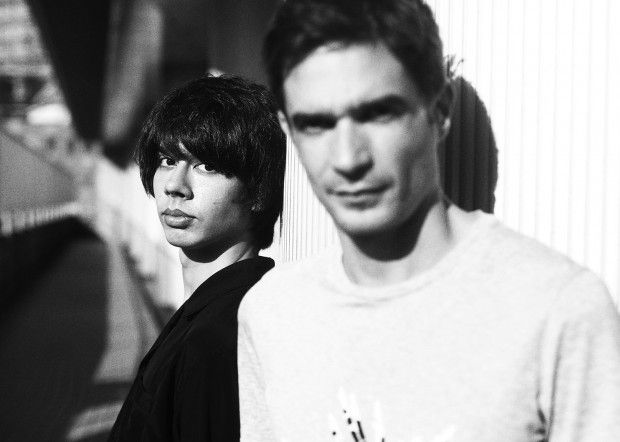
ショウ「同じです、僕も少し曲を寝かせておくことが多いです」
Jon「そうしないと、なんだか頭がおかしくなってしまうよね。楽しみながらやらなくちゃ」
ショウ「曲のストーリーが素晴らしいことも衝撃でした。なので、コンセプトから曲を書いているのかと思いました。最初の音に次の音を加えて行ってしまうとストーリーなしで作れてしまって、それがいい時もあるけれど、良いストーリーがあるというのは格別です。ストーリ−をきちんと持たせていくのはとても難しいことだと思うので、聴いて本当にびっくりしました」
Jon「まさにそれをやろうとしているから、そう言ってもらえて良かった。みんなそれぞれの捉え方というものがあると思うから、自分のストーリーを押し付けたくはなくて。インストゥルメンタルは、歌詞がないからみんなが自由に解釈できる。自分にとって意味するものはあるけれど、それをみんなに同じく感じてもらえるよう、あえて詳細に語るようなことはしないんだ。何通りにも聴こえ方があっていいと思うから。僕の頭の中では、アルバム全体でのストーリーというものがあって、それぞれのトラックが本の中の章のように結びついているんだ。もともと何を意識していたかを感じ取ってもらうためにも、アルバムの曲順に聴いてもらうということは、すごく重要だよ。楽曲は個々にも成り立つものだけれど、アルバム全体がそのフォーマットになっているんだ」
Sho : “Yeah I do let the song sleep sometimes.”
Jon: “Yeah you have to, because otherwise it starts to drive you mad. You got to keep enjoying it.”
Sho: “I thought it was amazing that your songs really have a story. That you had such great stories in your , blew my mind. That’s why I thought you write songs from concepts. Because if you write from having a first sound, then add on a second sound, the subject just goes without any story. Well that’s good too sometimes. I thought it might be hard to make a story with that so I was just surprised.”
Jon: “That’s good, that’s certainly what I’m trying to do. I think I don’t want people to be told by me what the story is because I think everyone will have their own interpretations. The good thing about instrumental music is that with no lyrics, you can interpret it freely. I know what it means to me but I’m not going to talk specifically to prescribe that meaning to anybody else. It can be heard in a number of ways. “I think there’s a story for the album as a whole, something that ties it together in my head. But track by track, they’re all kind of chapters. It’s like chapters in a book. Which is why it’s important to me that people listen in order if they want to experience how it was intended. But it works separately as well but I think the album is a format.”
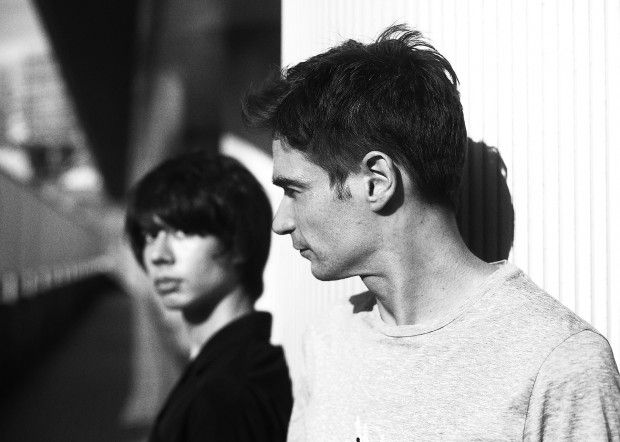
ショウ「フルできちんと聴きたくなるアルバムですよね。僕はレコードを聴くことや、バンドサウンドが好きで、普段から最初から最後まできちんと聴くタイプですが、最近は世界観が全部バラバラで、全体で楽しめるアルバムがあまりないと感じています」
Jon「もちろんそうやって聴いてくれる人もいるだろうけど、それも理論的なものであって、現代の気に入った曲をプレイリストに入れて聴くという構造的には、曲順を気にかける人なんて少なくなってきていて、全体的な評価のほうが重要なのかもしれない。自分もプレイリストを使うし、たくさんの人がランダムに聴くことはわかっているんだけど、そこは自分がアーティストとしてどうやって表現したいかが大切だと思うから、気にしても仕方ないよ。僕にできるのは、もし聴いてくれるのであれば、1番いい方法でそれを体験してもらいたいと伝えることだけ。実際に聴く人がどうしたかについては、僕が口を出すようなことではないと思ってる。だけど、たとえ10人だけでも曲順通りに聴いてくれたのなら、それこそが僕がオプションとして提示しているものだし、ちゃんと意味があるんだと思える。聴き手にどう思われようが関係ないと言っているのではないよ。それは、もちろん気にかけてる。僕が言いたいのは、完成させたものをコントロールすることはできないんだから、リリースした以上は、手放すしかないんだってこと。そしてその音楽が、リスナーになにかを伝えてくれることを願うしかない。聴く人によっても、聴こえ方は違ってくる。誰しもにある経験だと思うけど、その時の自分の気分によって、音楽はまったく違った感情を引き出すものなんだ。いつもと全然違う環境で聴くと、音も変わって聴こえたりする。音楽はそのくらい柔軟なものだし、だからこそ面白いよ」
Sho : “And your music was perfect for the album too. It makes you want to listen to it all. And I listen to records and stuff so I like bands. I do listen from the first song to the last song, but these days there aren’t many albums that make me want to do so. It’s all separated.
Jon: “It’s just a theory, but it’s possible that some people are, in a way it’s structuring out and they’re paying less attention to the order and do the holistic approach because they know that people will just playlist their songs. I know that as well. I know that a lot of people will listen randomly but I don’t care because all you can do as an artist is present it. And tell people you want the best experience if they decide to listen to it. After that, it’s none of my business whether they actually do it. But the option is there even if only 10 people listen to it in order. That’s still the intention.
I would never say I don’t care what they think, I do care. I mean you can’t control anything once you finished it, so once it’s released you have to let it go. And hopefully the music will convey something to the listeners. But it’s up to them, it’s like who they are that will determine how they hear it. Because we all have that experience where if you’re feeling a certain way, a piece of music will bring a certain feeling out. If you’re feeling very different, it could sound different. Music is very malleable like that. It’s very interesting.”
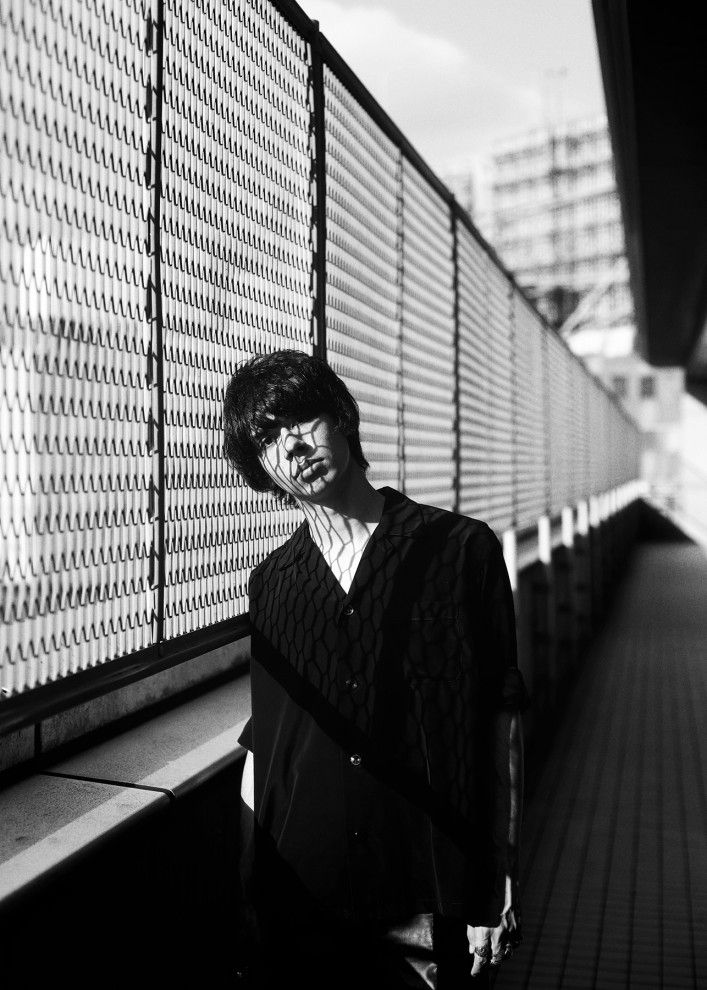
ショウ「では作っている時に、聴き手にわかりやすくするため、好かれるためにこうした方がいいのかな、と考えたりすることはありますか?」
Jon「それは全部同時にやっている感じがするかな。自分が作りたいものというのは、あくまで自分が作れるものであって、同時にそれがリスナーにシェアしたい視点でもあるからね」
Sho : “So when you’re making music, do you feel a need to make something that the audience will like or understand?”
Jon: “It feels like those things at once. Because what I want to make is all I’m able to make and simultaneously that is the perspective I want to share.”
ショウ「僕は こうやったら理解してもらいやすくなるかなという気持ちで作ってるものもありますが、それにはきっと気づかれてしまうので上手くいかない。商業的なやり方をしていることは伝わってしまうというか」
Jon「そうだね。コマーシャルで、誰しもが共感できる音楽は、それ自体を自分が本当に好きかどうかも含めて、意義を伴わない限り難しいと思うよ。僕の音楽は、アクセスしやすいものと屈折したもの、ちょうどその中間くらいにあると思う。だから聴き手にしてみれば、ああ、これならわかるっていう瞬間もあれば、そうでない時もあって、それはごく自然なことなんだ。あまりによく出来たポップソングは、なぜだか簡単に作られたように思われるんだけど、実際作ってみようとすれば、何千人ものひとを一瞬で虜にする曲を書くことがどれほど難しいか、よくわかると思う。たとえばコールドプレイは誰かが思わずくちずさんでしまう曲を書く、それどころか、スタジアム全体を合唱させてしまう。それは決して簡単なことではないよ。ある程度聴き手を選ぶ音楽を作る方がきっと簡単さ」
Sho : “When I was making music, we were trying to make something that people would understand easily, and they were conscious about it. But it didn’t work. They will understand if you do it commercially.”
Jon: “Yeah I think commercial projects can only work if you’re doing it for the right reasons, including if you really love that accessible music. My music is somewhere between accessible and skewed, somewhere in the middle. There’s moments where you could say oh I can understand that, and there’s weird moments but I can only do what comes naturally. So I think often when I hear a brilliantly written pop song, which a lot of people may say that is easy to write, well if you try and write that, see how hard it is to write something that thousands of people can hear once and like. You go into a Coldplay song and you hear something you see that guy singing those songs and the entire stadium is singing along, and you go okay, maybe that is not the easiest thing. I think it’s probably easier to write this kind of music.”
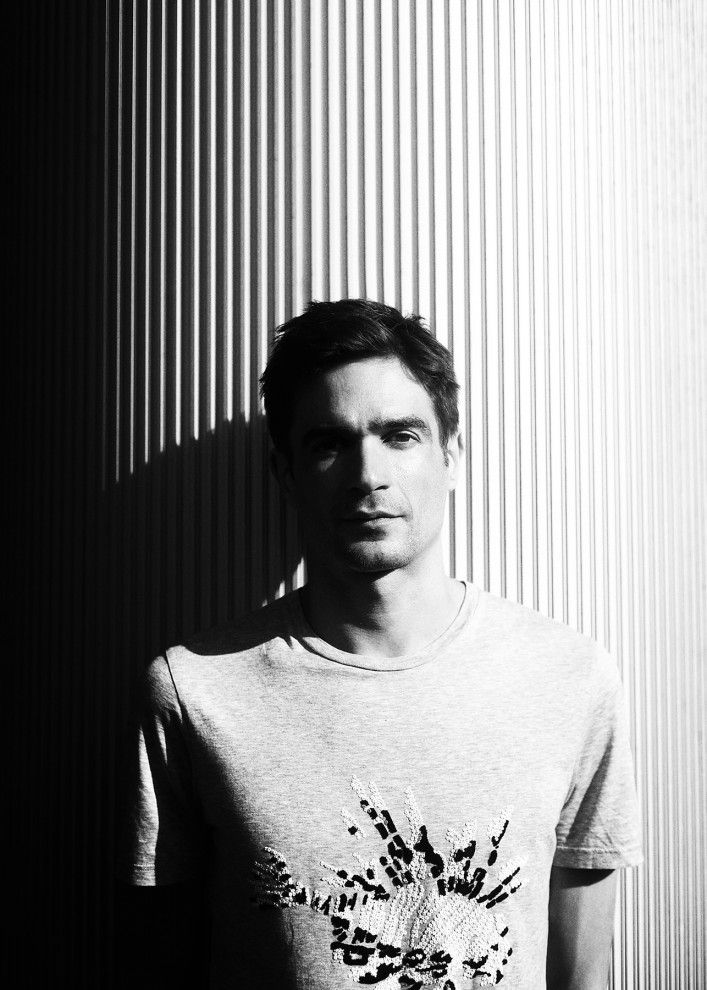
ショウ「これは、テクニカルな質問になりますが、あのドラムの音はどうやって作っているんですか?」
Jon「もしかして、はじまりのところの音かな? あれはイカれてるよね。数ヶ月もの間、このレコードの全体像を繰り返し思い描いていたけど、何を聞いてもテンションが上がらなかったんだ。でも、ある日あの音にたどり着いて『これは面白い!』って、やっと思えたんだ。『よし、これでようやく作品に取りかかれる』と思った、印象的な瞬間だったね。もとは僕の友達が思いついた方法で、サウンドにボリュームエンベロープをかけて、他のサウンドを重ねるというプラグインのアイデアなんだ。たとえば、ノンリズミックなパッドと、ドラムのエフェクトシートがあるとする。そのプラグインがあれば、ドラムのエフェクトをパッドに持ってくることができるんだ。アタックやディケイのレベルはコントロールできるから、簡単に言えば、リズムが存在しない音に、だんだんとリズムを加えていくことができるのさ。そこからいじくりまわすこともできる。どっちかというとトランスっぽい音をつくるためのアイデアだったけど、もっと変則的で、機械っぽくない音にしたかった。トランスはあまり生き生きとしていなくて、人間味がないからね。だから、それをもっと汚してみた感じ」
Sho : “It might just be a technical thing, but I wanted to ask you how you make the drum sounds?”
Jon : “The beginning? Yeah it’s crazy. I was filling around the sketches for the record for a couple of months and I wasn’t excited by anything I was hearing. And then one day I made that sound, and went “Ah, that’s interesting.” Then I thought, “Okay now I’ve truly begun this record.” It was an exciting moment. The way it was made is a friend of mine who is an artist had this idea for a plug-in which was something that allowed you to apply the volume envelope on sounds to another sound over that one. So for example, let’s say you have a pad which is non-rhythmic. And then you have a drummer sheet. This plug-in can apply the volume level of the drummer sheet to that pad. But with controls over attack and decay so essential what this means is you can turn a non-rhythmic sound into a rhythm gradually. And then you can fuck around with it. And so, the idea was to kind of take the idea of a trance music but try and make it way less machine like and way more irregular. Because trance isn’t very alive, not very human. So it’s a more dirty version of that.”
ショウ「あの音がとても好きです。曲を書き始めたのはいつ頃ですか?」
Jon「19歳くらいかな。21歳のときに1stアルバムを出したんだ。21歳の誕生日の直前だったんだけど、本格的に曲をつくるようになったといえるのはその年からだね。19、20歳のときは、まだほんの子供で、どうやって音楽を組み立てるのか手探りの状態だった。だからあまり複雑なこともできなかったし、さほど面白いとは言えないけど、スタートは切れたというわけ。そこからずっとやっているから、もう何年も経つね」
Sho: “Wow, amazing. I really like hearing that beat. So when did you really start writing songs?”
Jon: “When I was about 19. My first album came out when I was 21. Just before my 21st birthday but I wrote most of it when I was 21. I was 19 and 20 and I was just a kid really and figuring out how to structure a piece of music. It’s not a very complex album, it’s not interesting but it was a good start. So yeah, I’ve been doing this for ages.”
ショウ「テクノにはいつから興味を持ち始めたんですか?」
Jon「15歳くらいのときはテクノを聴いていたんだけど、最初のアルバムをつくった時にはチップチューンとかアンビエントにハマっていたんだ。だから昨年30歳になって『イミュニティ』に取りかかるまでは、制作ではテクノに手をつけてはいなくて。それまでは、アンビエントだとか、28歳のときに作った『インサイズ』みたいな、もっとグリッチーでダブステップっぽいものを作っていたね。EDMの要素もあったかな。テクノに行き着いたのはそれからだよ。永遠に繰り返されるんじゃないかと思えるようなヒプノティックなリズムに完全にハマってしまったんだ。『イミュニティ』にも、同じ大きな音がただ永遠と繰り返されるような長い曲があって、そういうのが好きなんだ。このレコードにもちょっとそういった部分があるしね」
Sho : “So, when did you get into techno music?”
Jon: “More like when I was about 15 I got into listening to techno but then by the time I wrote that album I was more into tune and ambient. So I didn’t try writing techno until last year when I was 30 I guess, when I started writing immunity. Before that, it wasn’t really techno though. Ambient and, I did an album when I was 28 called Insides which has some glitchy, slightly dubstep-ey stuff on it EDM as well a little bit. Then the techno stuff followed that, really. Just got really into that idea of hypnotic rhythm that repeated for ages. You can hear that on Immunity, there’s all these really long songs with just one big note and I like all that stuff. And on this record a bit as well.”
ショウ「PCを使って曲を作る前はバンドなどをやっていたんですか?」
Jon 「やってないよ。でも、イモージェン・ヒープっていうUKのアーティストがいるんだけど、知ってるかな? 彼女はほかにFrou Frouってプロジェクトもやっていて、その頃からものすごくうまくてさ。学校以外での初めての仕事が、彼女のキーボード・プレイヤーだったんだ。17歳の時でその職を得て、ステージ上でのパフォーマンスの仕方なんかはそこで学ばせてもらったし、いい練習になったんだ」
Sho: “So you started making music with computers and stuff, but were you not doing a band?”
Jon: “No. There was a singer in the UK called Imogen Heap. Did you hear of her? She’s in this band called Frou Frou as well and she was really good, and she still is really good. So my first job outside of school was being her keyboard player. When I was 17 I got this job, so I learn about performing on stage a bit and that was my education.”
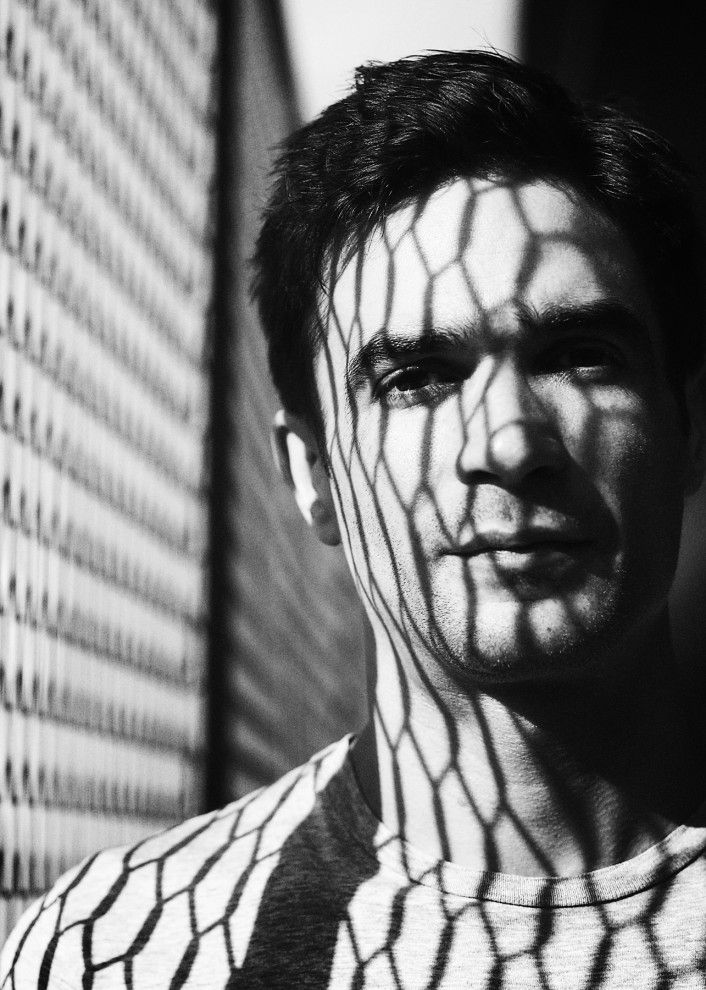
ショウ「僕はバンドだけではなく他のアーティストも聴く努力をしていますが、最近はソフトウェアの進化でデスクトップだけで曲を作れますよね。でも少し前まではそれはかなり複雑な作業で、僕は楽器を実際に弾くほうが楽だと思っていて、今も変わらずPCだけで曲を作ることがまだできていないんです。その難しい時代からパソコンでの作曲をやり始めたあなたを尊敬します」
Jon「確かに昔は今よりはもっと難しかったね。1999年か98年頃はキューベース、それからKORGのトリニティーとミニを持っていたよ。よくバグったし、慣れるまでは使いにくかったけど、ある意味ちょうど良かった。というのも、今のソフトはなんでも完璧な音に仕上げてしまうから、面白い音を作り出すのに時間がかかるんだ。僕はそう感じるから、一概に今の方が簡単だとは言えないかな。音楽を作ること自体は簡単かもしれないけど、面白い作品を作るのは簡単なことじゃないよ。今回のアルバムに、僕は初めてエイブルトンを使ったんだ。なにがいいって、5分で曲が書けてしまうし、レイアウトして、あとは調整していくだけ。無限にディテールがあるし、とてもクリエイティヴなツールだよ。なんていうか、たまに最初からこのようなツールがある時代に生まれて来た世代は、逆にかわいそうだなんて思ったりもするんだけど、言い換えれば、彼らは最初からなんでも持っているわけだ。ただ、その分の努力をしなくてはならない。僕らも努力をしなくてはならなかったけど、違う種類の労力だった。テクノロジーは色々なことを変えてしまったけど、昔もこれからも、本当にカッコいい音楽は努力なしに生まれてきたりはしないんだ」
Sho : Because we just started music with the band, we still sometimes.. I just started listening to other artists and not just band music. These days, young people really start writing songs on their own desktop. It’s really easy these days and I understand that, because the software has become easy. But before that, I thought it was more complicated. But to us, it was easier to just play instruments. So we still don’t really know how to make songs on the computer by itself. It’s interesting how you got into it.”
Jon: “It was much harder back then, I had a cube bass in 1999, 98 maybe. And I had a cord trinity and a mini between the two. It was difficult, there were always bugs and you had to screw around for a long time to get it to work. In a way it’s good for you because now it’s almost impossible for you to make it sound not completely perfect. You have to work harder now to make it sound interesting. That’s what I think. So It’s not easier. It’s easier to make just music but it’s just as hard to make something interesting. I use Ableton, I used Ableton for this album for the first time and what I love about it is that you can write something in 5 minutes, layout and then just down down down. Just infinite levels of detail. It’s a very creative tool. In a way sometimes I think I feel sorry for people growing up into this now, but in other words they’ve got everything, you know. They just have to work hard. We had to work hard and I think it’s just a different work. Technology has changed everything but good music still doesn’t write itself.”
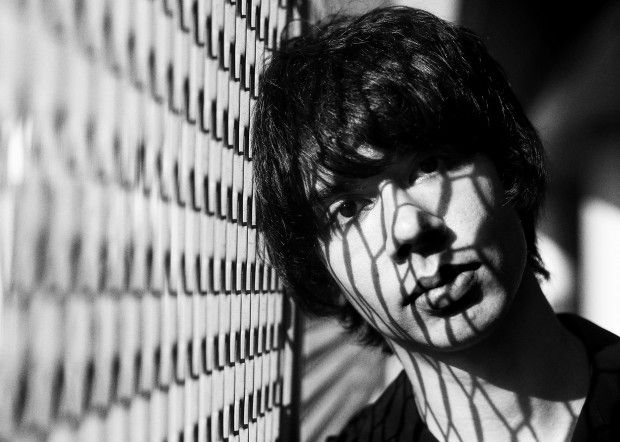
ショウ「ヴォーカルも様々なアプローチで作られてるものが多いですよね。エフェクトが増えたり、どんどんクリエイティヴになっていて。その影響もあってか、最近ではテクノでもヴォーカルを起用したものが増えていますよね。今回はインストゥルメンタルですが、そういう進化によって、あなたも自身の作る楽曲に声やヴォーカルを入れようと考えたり、作るものに影響を与えることはありますか?」
Jon「そうだね、といっても僕自身は歌えないけれど(笑)。これまでもヴォーカリストとコラボレーションはしてきたんだけど、それは自分の作品とは呼べない気がして、アルバムに入れようとは思わなかった。コラボレーションをしてくれた人の作品に入れてもらうのは全然構わないんだけどね。『イミュニティ』ではピュリティ・リングやキング・クレオソートのボーカルが入った長いバージョンも作ったし、コラボレーションはすごく楽しいけど、自分の中では別のプロジェクトとして考えているんだ」
Sho : I think there is more music now using vocals and human voices because there are so many ways to improve the singing sound. Do you think you are influenced by that technology that we have now in terms of music, by vocals? Does it make you want to use human voices? For a while there was only instrumental music, but now people have started using voice again.
Jon: “Yeah, I mean well I can’t sing so. But I have worked for vocalists in the past but I don’t like to put them on the album because like I said, it’s not me. But I do these collaborative tracks with people who can sing and can add their own. So on Immunity we did an expanded edition which had vocals from Purity Ring and King Creosote as well. So that sort of thing is really nice but I just keep it because it’s a separate project.”
ショウ「いつかぜひ聴きたいです。テクノロジーの進化が著しいが故に、ヴォーカルなどを起用して人間味を出したいという流れもある気がするのですが、そういう現象はどう思いますか?」
Jon「自分にとっては、ピアノの音楽にすごく人間味を感じるんだ。純粋なピアノの音は、人間の声みたいなもので、歌っているのと変わりないように感じる」
Sho : “ I feel that the development of technology has forced people to be more human, and go back to using vocals and voices. What do you think about this phenomenon?”
Jon : “So in a way, I do so much piano music for this reason. Pure piano for me is human. That’s my equivalent to singing .”
ショウ「素晴らしいです。いまは最新の音楽を携帯で聴けてしまう世の中で、手に入れるまでのスピードの速さはそのままアルバムに飽きてしまうスピードなのではないかと思ってしまいます。飽きているわけではなくても、すぐに新しいアルバムに移っていってしまう。以前は永遠に聴いてもらえるような楽曲にしたいと思って書き、3年後、5年後、10年後に聴いても良いアルバムであるようにと願っていましたが、最近では永遠に一番のアルバムでなくても今年一番のアルバムであってくれればいいと思う部分もあります。今年一番いい、でも3年後にはなんか違うなと思ってしまってもいいような作品を作りたいと思っていて」
Jon「君がどんな作品を作りたいと考えているか、具体的な構想はわからないけれど、そのとき自分の中のベストであればいいんじゃないかな。僕にとっては、それがいつアルバムが完成したかの目安でもある。これ以上、いい作品にすることができるかどうか。どれだけ時間がかかるかは、あまり気にしないな。たとえばこの作品の制作には2年かかったけど、少なくともそのくらいの時間、僕は飽きずに楽曲と向き合っていたわけだから、リスナーも同じくらいは飽きずにいてくれたらいいなと思うし。僕はみんなが5年後も聴きたいと思ってくれるようなものを作りたいし、それが目標だね。みんながそう思ってくれるかどうかは、僕次第だけど」
Sho : “Impressive. These days there are a lot of ways to listen to music, but the newest ones come to your phone quickly. So I think it’s the speed of people getting bored of old albums, or maybe not getting bored but people tend to just go to the newest albums. Before I used to write songs and make albums hoping it would stay forever. I was hoping my albums would be a great albums 3 years from now, 5 years from now and 10 years from now. But these days I’m starting to feel like I want to make the best album this year even if that album might not be the best album.”
Jon: “Yeah and I don’t see how else you would consider something finished unless it’s the best you thing you can do. It’s my mark for when I know the record is finished. Can I make it any better? I don’t really think about time scale. If it’s taken 2 years to write, and I haven’t gotten bored of the tracks in that time, it means that hopefully listeners won’t get bored of them either. I want to make things that people still would want to listen to 5 years later. That’s the goal. They way that they do or not isn’t really up to me.”
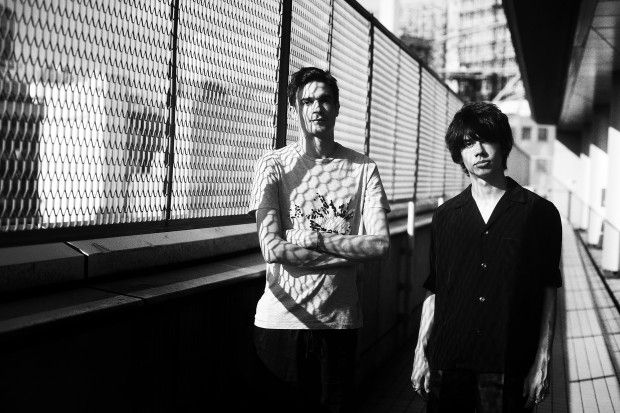
ショウ「2010年にブライアン・イーノとレオ・エイブラハムスと3人でインプロビゼーションをしたアルバムがありますが、あれは共作のような感じなんですか?」
Jon「スモールクラフト・オン・ア・ミルク・シーのことかな?」
Sho : “You collaborated with Brian Eno and Leo Abraham right? Were you involved in the production of it as well? So this is an album from 2010 of improvisation with Brian Eno , Leo Abraham and you.”
Jon: “Were you talking about the Small Craft on the Milk Sea album?”
ショウ「そうです。そういったコラボレーションと自分の作品だとどういうテンションの違いがありますか?」
Jon「あのアルバムは、完全に即興で作っていて、ブライアンが指揮を執っていたんだ。3人で彼のスタジオに3週間こもって、何時間もジャム・セッションをして、それを彼がアルバムにした。だから自分のやり方とは全然違ったよ。自分でやるときは、もっと時間をかけるし、どちらもまったく異なるアプローチだね。ああやって即興でやるのも楽しいけどね。素晴らしい経験だよ」
Sho : “Yes. Does your mood differ for your own project and for collaborations?”
Jon: “Yeah, I mean that one was entirely improvised and Brian was in charge obviously. So the 3 of us were just in his studio for 3 weeks and we just jammed for hours and stuff and then he edited it to an album. Whereas when I work, it’s completely different. I spend way longer on stuff and it’s a very different approach, both. I love making music that way as well. It’s great.”
ショウ「ブライアン・イーノはどんな人ですか? いつか会ってみたいと思っています」
Jon「とってもクールだよ。落ち着きがあって、でもすごく面白いんだ。結構ブラックな皮肉をかましたりね。カッコよくて、ユーモアがあって、すごく好きだよ。もう何年も会えていないけど。初めて会ったのは23歳の時なんだけど、今思えばすごいことだよね。その時初めて一緒に音楽を作ったけど、自分なんてまだほんの子供みたいに感じたよ」
Sho : “What was Brian Eno like? Like his personality? I wish I could have a chance to meet him.”
Jon: “He’s very cool. He’s laid back, very funny. Dirty sense of humor, he’s cool. I like him. I haven’t seen him for ages now. Yeah, funny guy. It’s crazy, I was only 23 when I met him. When we first worked together. Imagine how that feels, quite young.”
ショウ「若いミュージシャンの曲は聴きますか?」
Jon「そんなに若いと言えるかはわからないけど、アンビエントやビートレスな曲をたくさん聴くよ。ダンスミュージックはあまり聴かないんだ。DJをやっている時はもちろん別だけど、静かなものが好きなんだ。たまには静かに過ごしたいと思わせられるほど、今の人生は騒がしくてね」
Sho: “So do you listen to a lot of new music that young people make?”
Jon: “Not that young, but I do listen to a lot of ambient music and stuff without beats. I don’t really listen to much dance music at all. When I’m DJing it’s different obviously, yeah I think I like quiet stuff. Especially when I’m tolerating life now I just want like, life is loud.”
ショウ「お気に入りのアーティストはいます?」
Jon「そうだね、S・キャリーというアーティストがいて、彼はボン・イヴェールのバンドのキーボード・プレーヤーで、シンガーでもあるんだけど。彼自身のプロジェクトの音楽も素晴らしいんだ。彼がリリースした『ハンドレッド・エーカーズ』は魔法みたいさ。今年特に気に入ってるアルバムだよ」
Sho : “ I just wanted to ask if you have any favorites.”
Jon: “Yeah, there’s this artist called S. Carey. He’s in Bon Iver’s band and he’s the keyboard player and singer. He writes his own stuff and is really incredible. He had an album out called Hundred Acres and it’s a really magical album. It’s my favorite this year.”
ショウ「普段ショーをするときに決めているルールやいつも気をつけていることはありますか?」
Jon「今夜観てもらえばわかる思うけど(笑)。もうここ2、3ヶ月はツアーに出ていて、25くらいショーはやってきて、その間にセットも結構変わったんだけど、今は新しいセットにも自信がついてきたし、ライヴでは特に、新しいアルバムの曲をいかに伝わりやすく演るか気をつけているよ。ただ即興的にやるのではなくてさ。ライヴに行った時に、曲にアレンジが加えられすぎていて、せっかくその曲を聴きにきたのにうまくノレなかったりしたことはない? だから僕は、観客の聴きたいものを尊重して、少なくともレコードと似ているようにプレイすることは大事だと思うんだ。だから、会場に応えられるように、レコードの曲を強化してうまく聴かせられるように心がけているよ。もちろん、なんの曲かきちんと判別できる状態でね」
Sho : “I’ve never really seen you live so I wanted to ask if you have any policies or rules for yourself for your shows. Do you have something that you’re always careful of?”
Jon: “Yeah, I mean I guess you’ll see tonight, haha. The tour began 2 or 3 months ago so we’ve done like 25 shows or something so far and it’s changed a lot during that time, I’m getting very comfortable with it now and it’s important for me to represent recognizable versions of the album songs. I don’t just want to improvise. You know sometimes you just go and see someone live and they’ve messed around with the song so much that you don’t get that hit of music that you came there for. I think it’s important to respect the desire of the audience to her tracks at least similar-ish to how they are on the record. So I try to make them stronger and better than the record and respond to the room. But at this point they’re still quite identifiable as the tracks.”
ショウ「最後に、僕はあなたの曲がかかってるクラブで6時間踊った経験があるのですが、オーディエンスを踊らせるコツは?」
Jon「ワオ、それは嬉しいな。トラックのリズムの部分に中毒性を持たせるのがいい。ただビートに合わせて歩いてるだけのところから、躍りたいと思わせるまでの過程を具体的にどう作っていくのか、言葉でうまく説明することはできないけれど、自分が踊りたくなるんだったら、みんなも踊りたくなるはずだし、きっと楽しい。今日のショーに来てもらうのが楽しみだよ」
Sho : “ I was dancing to your songs at a club for 6 hours! How do you make them dance?“
Jon: “That’s what I like to hear. You have to make something in the rhythmic part of the track addictive. I don’t think there’s a way to describe how to do it apart from just keep working on the beat, until it makes me want to move. If it makes me want to move it will make other people as well. It’s fun. I hope you come tonight.”
photography Takayuki Okada
text & edit Ryoko Kuwahara
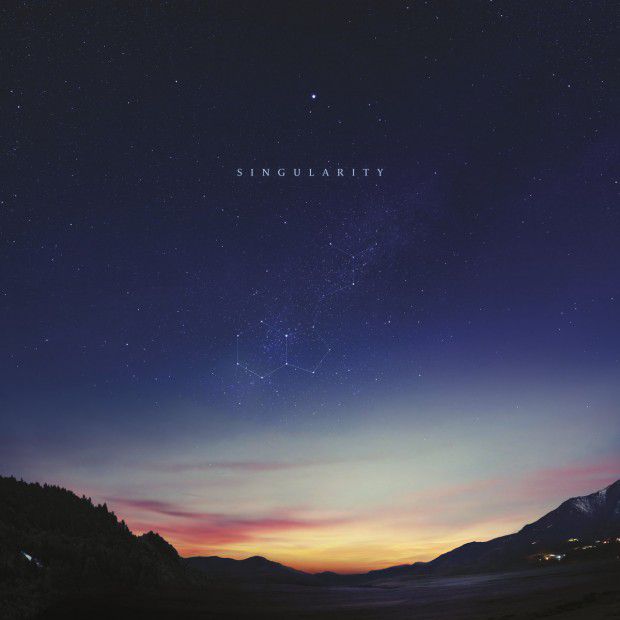
Jon Hopkins
『Singularity』
(Domino / Hostess)
Now On Sale
https://apple.co/2Fmrmd2
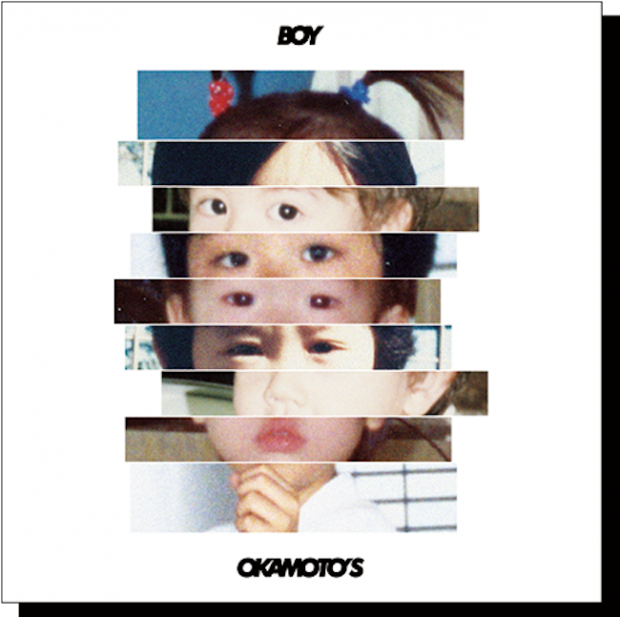
OKAMOTO’S
『BOY』
2019.01.09 OUT
iTuns
Amazon
Jon Hopkins
ロンドンを拠点に活動するプロデューサー。08年、ブライアン・イーノと共にコールドプレイの『美しき生命』に楽曲提供/プロデューサーとして参加。コールドプレイの世界ツアーのサポート・アクトとして初来日。イーノやキング・クレオソートとのコラボ作品を発表。13年に発表した4作目『イミュニティ』が英国最高峰音楽賞マーキュリー・プライズにノミネートされ話題となる。更に海外メディアの年間ベスト上位に選出された。2014年5月、TAICOCLUB’14で来日。2015年にはHOSTESS CLUB ALL-NIGHTERに出演、トム・ヨークやマシュー・ハーバートなどと同じステージで、その圧倒的な世界観で観客を魅了した。2018年5月に約5年ぶりとなる新作『シンギュラリティー』をリリース。また7月にはフジロックへ出演、初の単独公演はソールドアウトした。
OKAMOTO’S
オカモトショウ(Vo)、オカモトコウキ(G)、ハマ・オカモト(B)、オカモトレイジ(Dr)。2010年5月にアルバム 『10’S』、11月に『オカモトズに夢中』、2011年9月に『欲望』を発売。2013年1月に4thアルバム『OKAMOTO’S』を発売し、7月に は両A面シングル“JOY JOY JOY/告白”を、11月6日にニューシングル“SEXY BODY”をリリース。2014年1月15日に岸田繁(くるり)を迎えた5th アルバム『Let It V』を、8月27日にはRIP SLYME、奥田民生、黒猫チェルシー、東京スカパラダイスオーケストラ、ROY(THE BAWDIES)らとコラボを果たした5.5 thアルバム『VXV』を発売。2015年9月30日、6thアルバム『OPERA』をリリース。2016年6月1日にNetflixドラマ「火花」の主題歌「BROTHER」を表題曲にしたシングルをリリース。10月29日、東京・日比谷野外大音楽堂公演にてキャリア初の47都道府県ツアーファイナルを敢行。同ツアーからの厳選音源と、ツアー中に書き下ろした新曲「ROCKY」を収録し、ツアーファイナルの映像を全曲収録したBlu-ray付きライヴアルバム『LIVE』を2017年5月31日にリリース。8月2日に7thアルバム『NO MORE MUSIC』をリリース。同年10月7日には中野サンプラザにてキャリア初のホールワンマンの開催を発表し、即完売となる。同月30日より恵比寿リキッドルームを皮切りに全国23か所を回るツアー「OKAMOTO’S TOUR 2017-2018 NO MORE MUSIC」を実施。ファイナルとなるZepp Tokyoも完売となる中、オカモトショウのソロツアーが4月より、鈴木茂x猪野秀史 Special Support with 林立夫&ハマ・オカモトが6月よりスタートし、それぞれ好評を博し終了。11月には東阪ホール公演と、東海エリア限定の対バンツアーも敢行した。2018年1月9日、8thアルバム『BOY』をリリース。





